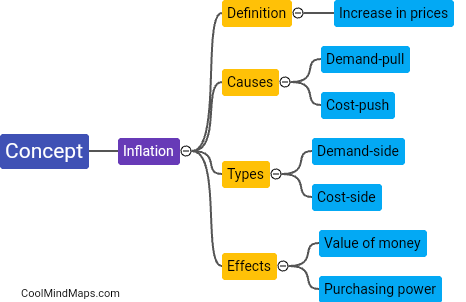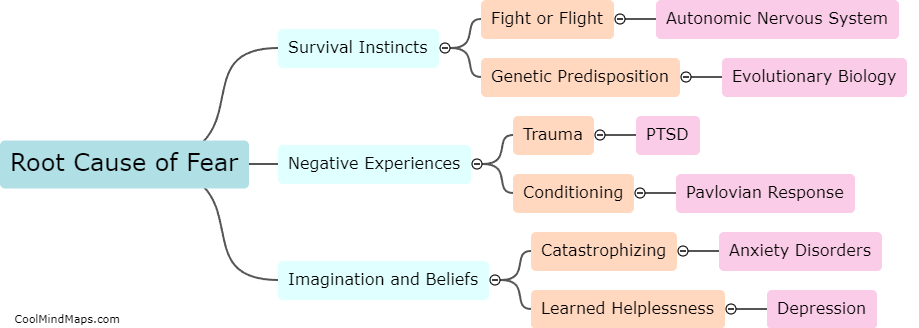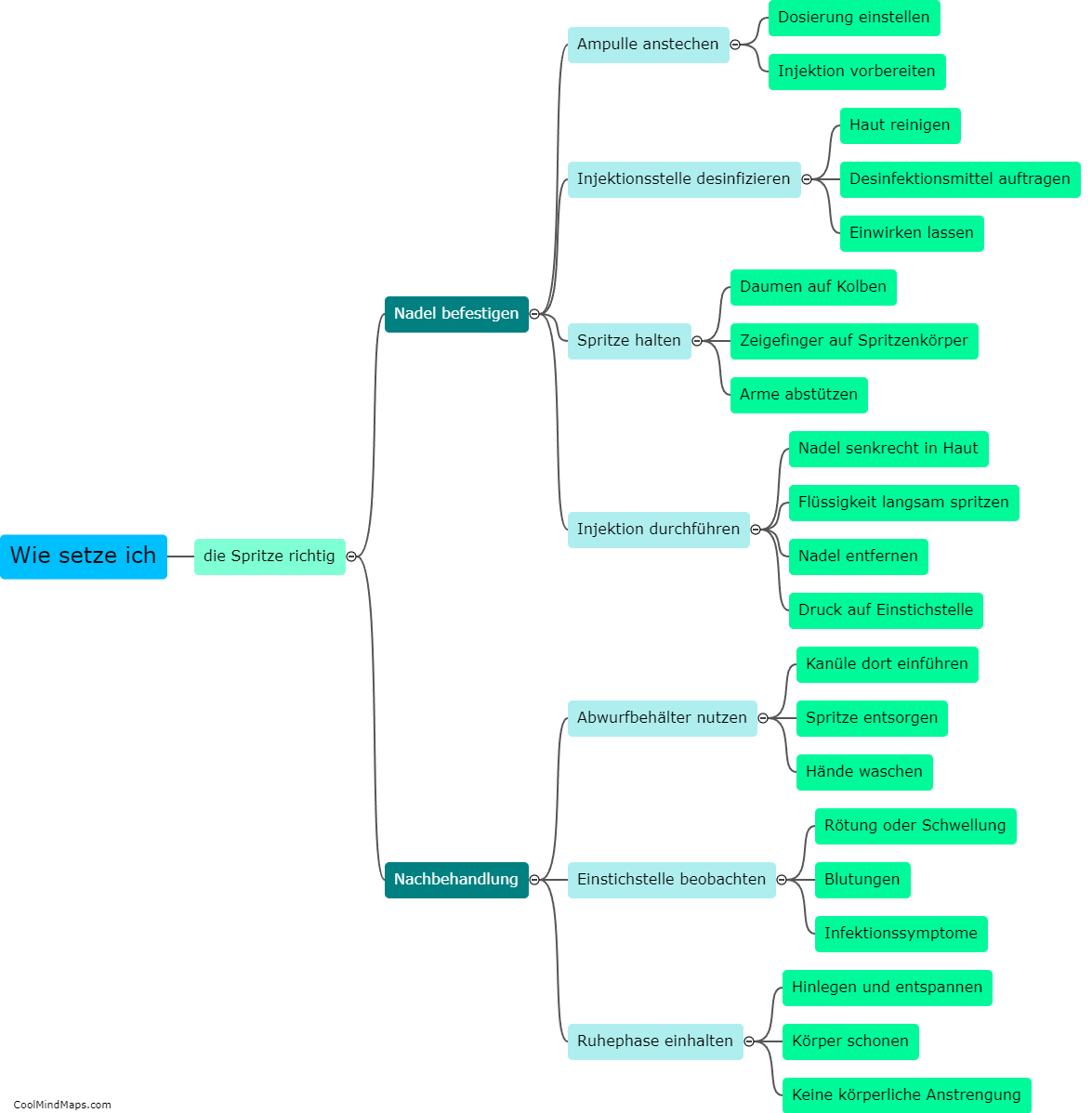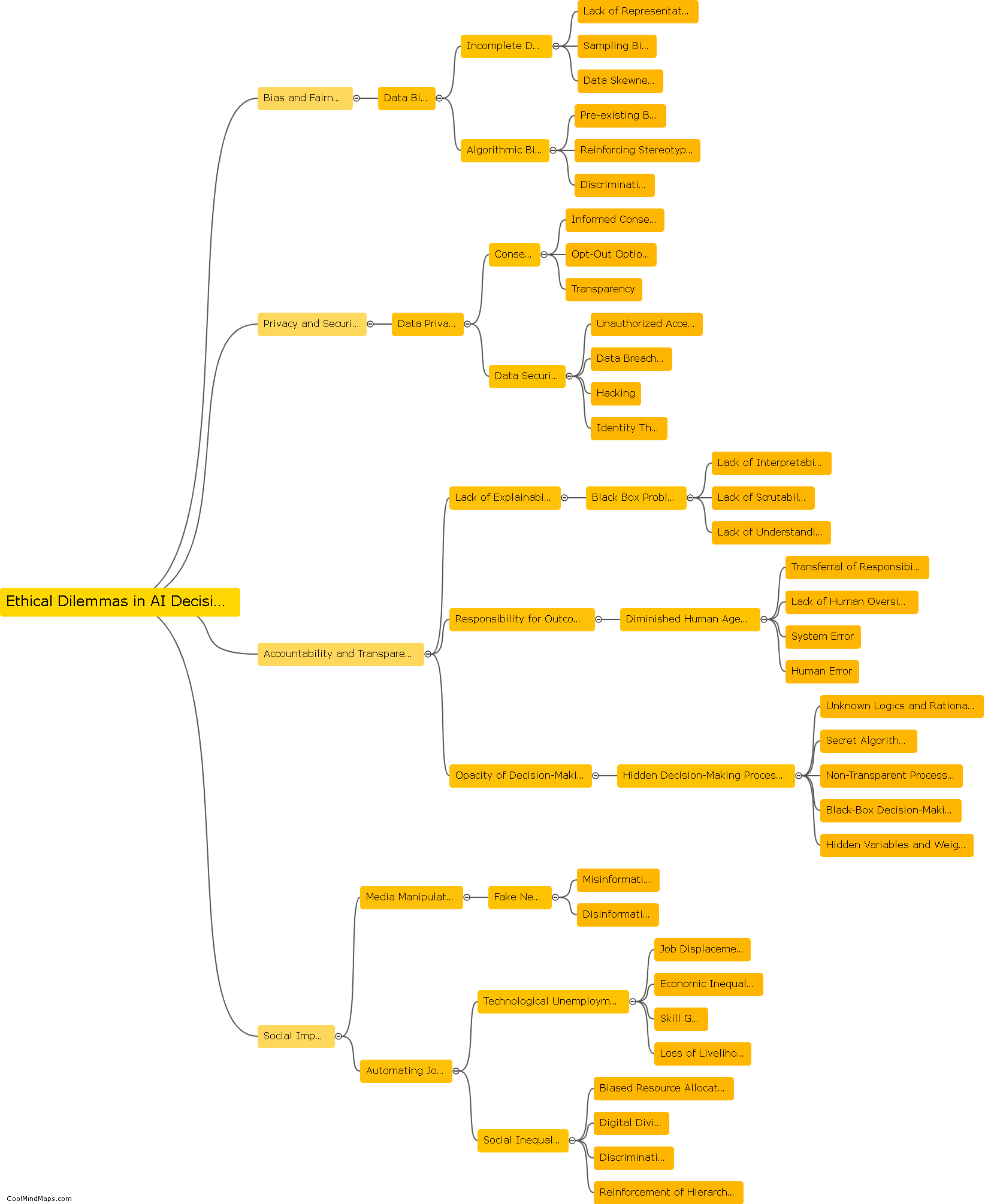What is the concept of inflation?
Inflation refers to the sustained increase in the general level of prices for goods and services in an economy, causing the purchasing power of a currency to decline over time. It is typically measured using an inflation rate, which shows the percentage change in prices over a defined period. Inflation occurs when there is an imbalance between the supply and demand for goods and services, leading to higher prices. This can be caused by various factors, such as increasing production costs, changes in government policies, excessive money supply, or increased consumer spending. While moderate inflation is considered normal for a healthy economy, high levels of inflation can be detrimental, eroding savings, reducing investment, and disrupting economic stability. Central banks and governments employ various measures, such as monetary policy and price controls, to manage and control inflation.

This mind map was published on 30 September 2023 and has been viewed 113 times.











